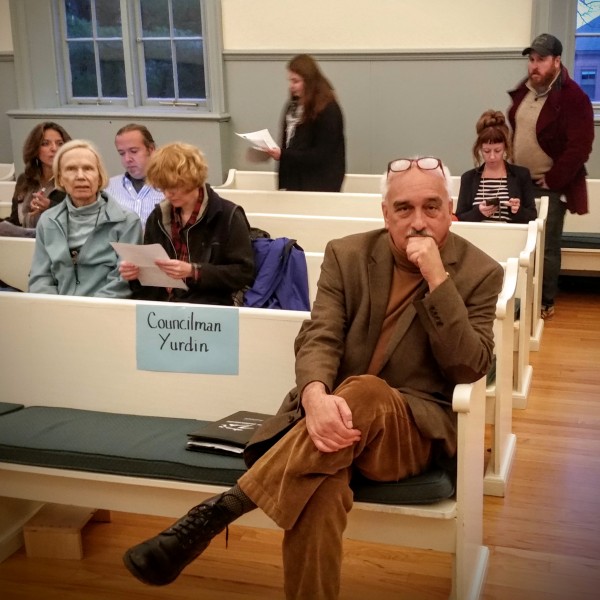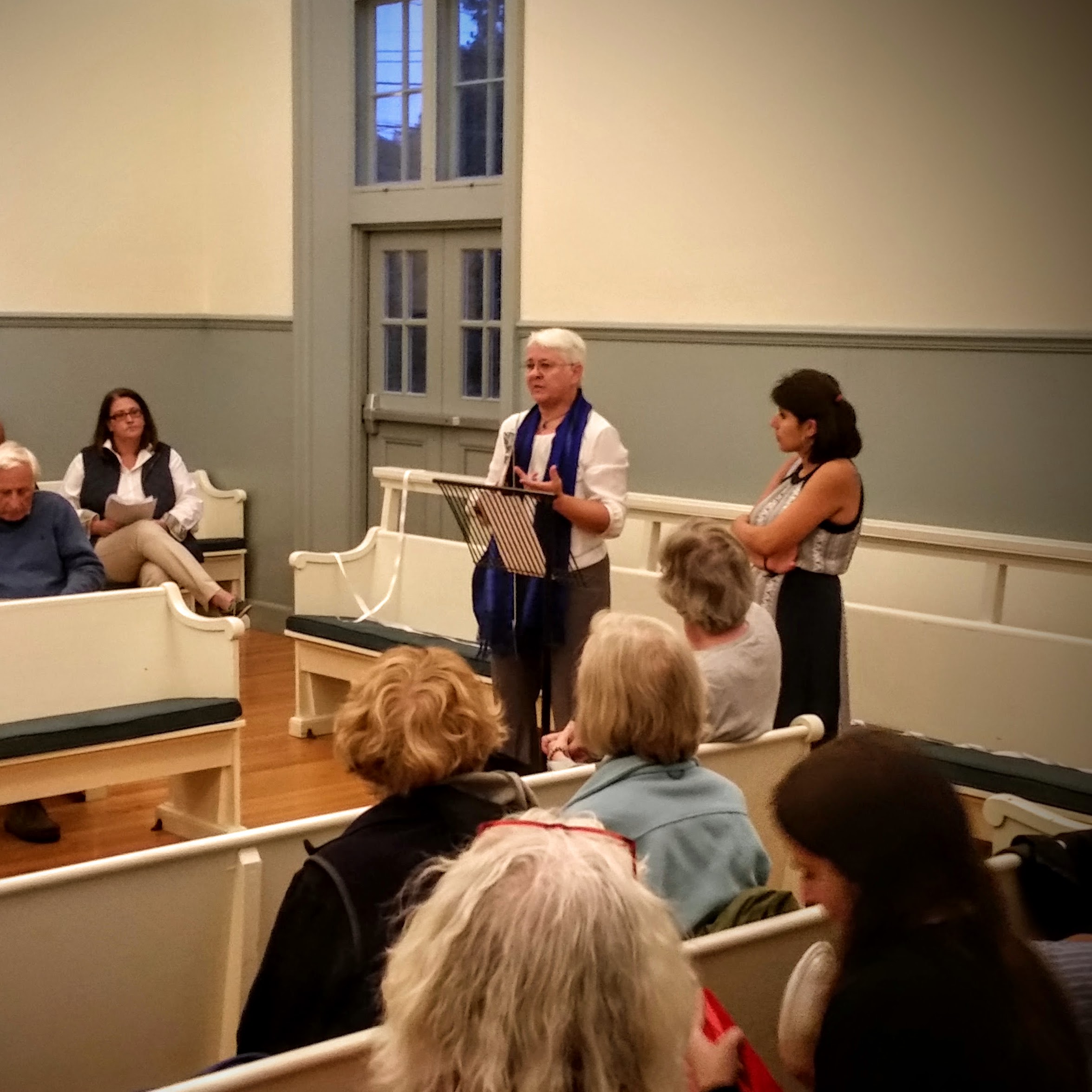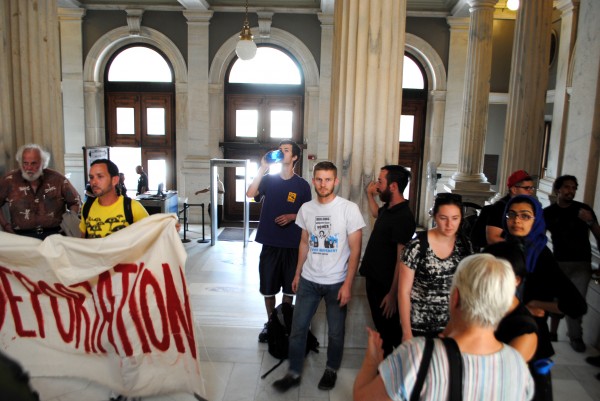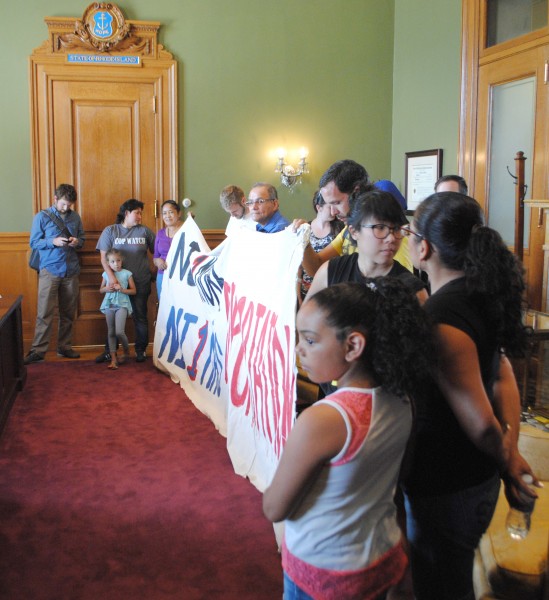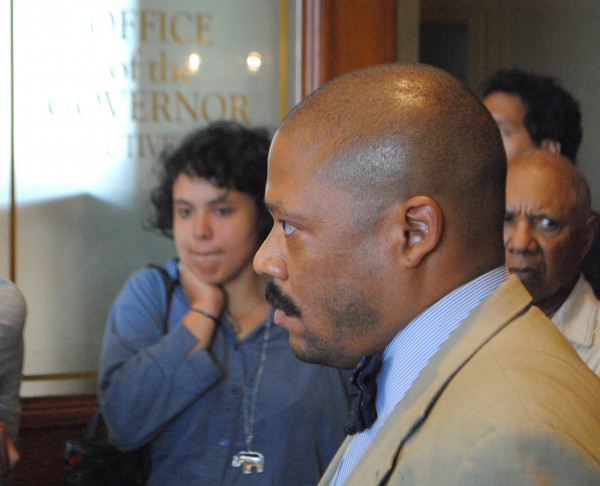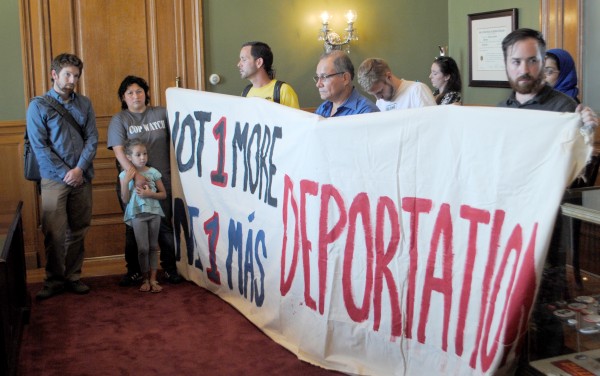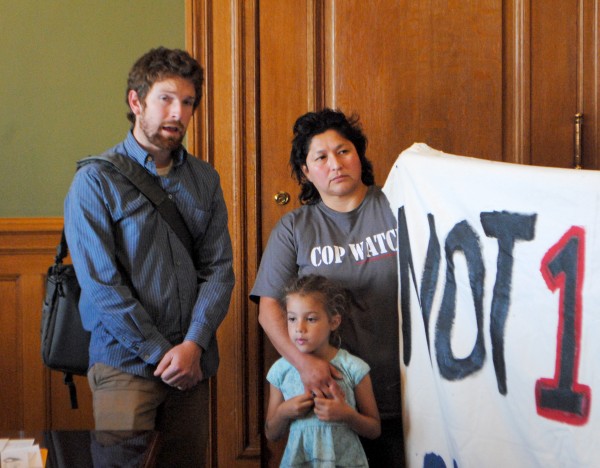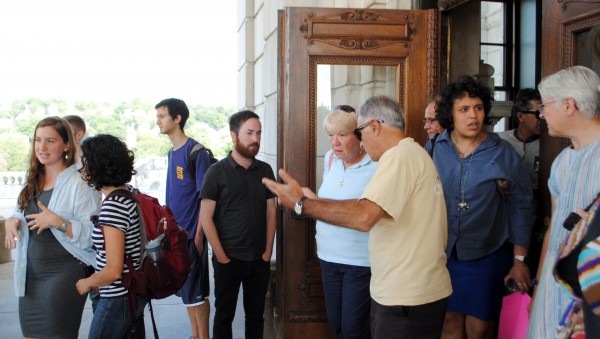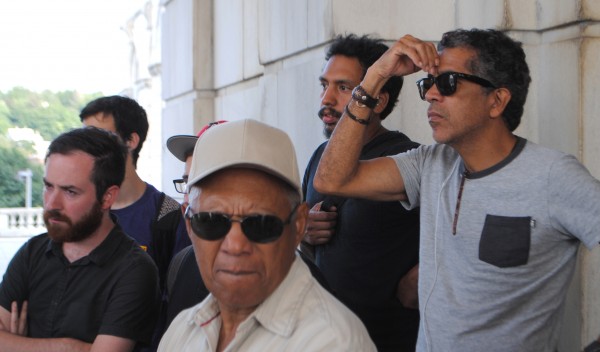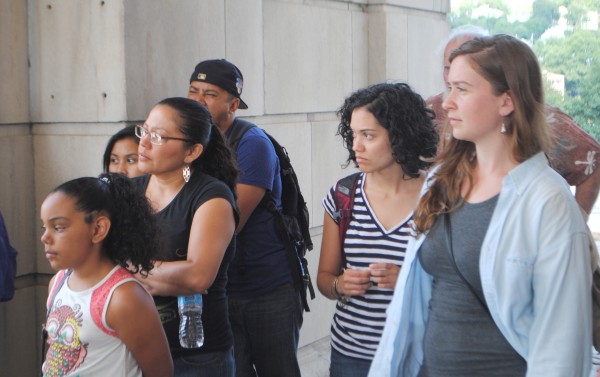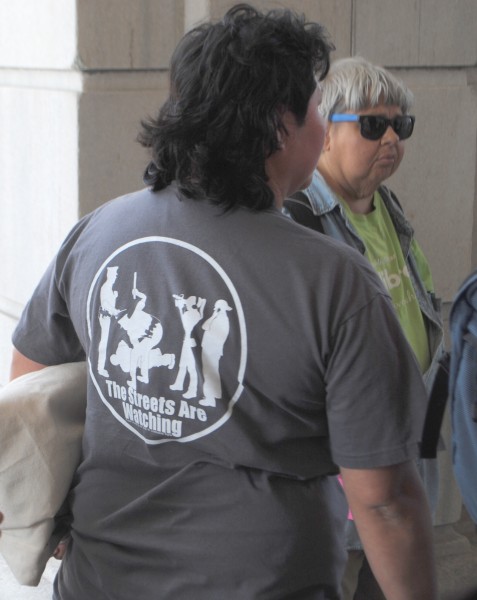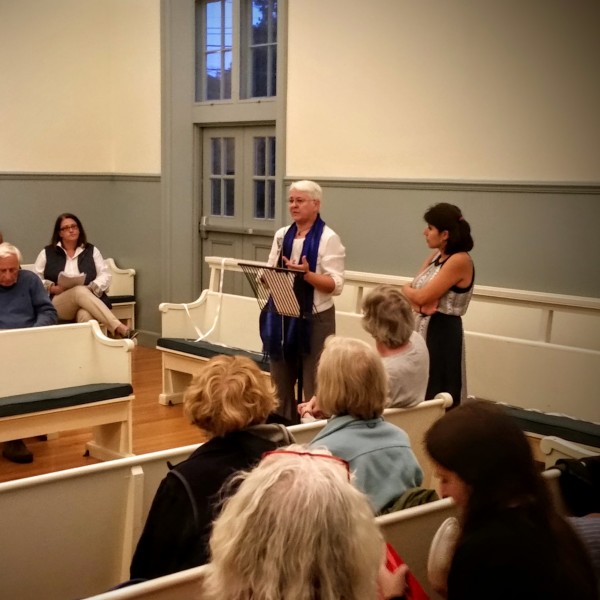
Providence Mayor Jorge Elorza attended an East Side forum on the Community Safety Act (CSA), saying that despite some differences, he doesn’t “think it will be a problem getting this done before the end of the year.”
East Side City Councillors Kevin Jackson and Sam Zurier were in attendance. Councillor Seth Yurdin was out of town. While Jackson is fully in support of the CSA, Zurier and Yurdin have both publicly registered doubts.
After Elorza heard the speakers below, he spoke about his own encounters with the police, due to racial profiling. Though in broad agreement with the CSA, Elorza did outline some points of disagreement, including issues around the use of canines in policing, requesting proof of ID from juveniles, a prohibition against photographing juveniles, the eradication of the gang identification database and concerns that a “community safety review board” clashes with the police officers bill of rights.
On the gang database, Elorza believes that there will be a way to make the process more open, so that people will be able to have some measure of oversight. He also feels that there may be ways to craft policies that will satisfy both sides of the issue.
“There are many more places where there is agreement than disagreement,” said Elorza, “and on the areas where there are disagreements, I still remain very hopeful.”
There was little doubt that the community members in attendance were squarely behind the CSA. Nine residents spoke passionately about the need for expanded oversight of the police. Resident Don Baier told a very personal story of when he called the police to help find his sister, who was roaming the streets, delusional. Because of the excellent work of the police, his sister was recovered unharmed and received treatment. Not everybody has such positive interactions with the police, said Baier. He wishes that “every neighborhood could get the same kind of swift, thoughtful action” from the police.
Resident Maureen Reddy is a white East Side resident with a black husband and children, and she is afraid to call the police, for fear that her family might be imperiled. “Both of my children have been hassled by police, repeatedly,” said Reddy. Her son simply assumed that when he left the house, he would be stopped by the police and asked to explain himself. Her daughter was stopped on Benefit St by officers with guns drawn. Had it been her son in that position, she fears he would be dead.
Once a man pulled into Reddy’s driveway and asked her to call the police. Before she did so, she made sure to tell her husband to wait inside the house, so he wouldn’t be a target when the police arrived. Another time, when a woman was yelling in the middle of the night, Reddy did not call the police. Her husband and other neighbors went outside to assist the woman, but before the police arrived, her husband went back into the house. Again, he did not want to be a target of police suspicion, simply because he was black.
Julia Carson is the Principal of Central High School in Providence and an East Side resident. “I am heartbroken when I am ordered, by police officers, to clear the plaza [at Central High school], ‘get the trouble out.’ I don’t know about any of you, but high school was my safe haven growing up. We used to hang out every day after school and I don’t understand why my kids can’t do the same thing.”
Criminal Justice Attorney Annie Voss-Altman cited research that shows that non-whites are more likely to experience the use of non-deadly force in their encounters with police. “Subject compliance didn’t matter,” said Voss-Altman, “across the board, you’re fifty percent more likely to experience the use of force in your encounter with the police is you are black or Hispanic than if you are white or Asian.”
East Side resident Doug Best made the financial case for the CSA. “…the cost of paying settlements for police misconduct,” said Best, is “our major contributor to poor ROI [return on investment].” In other words, when the police mess up, it costs the city money to settle cases.
East Side resident Mark Santow is an American historian provided a historical context for the CSA. Present policing policies in communities of color drive resentment towards the police, said Santow, “and resentment can prevent the type of effective policing needed to keep communities safe and officers safe.”
Libby Edgerly highlighted the positive efforts the Providence Police department has made in addressing some of the concerns presented this evening. Including Mayor Elorza’s recent announcements regarding plans to address concerns about homelessness downtown. “Other notable recent police department initiatives,” said Edgerly, “include requiring police to use department phones, not personal phones, when videoing non-violent demonstrators. Also, supporting a youth basketball group. Also, instituting additional police training on how to work with people suffering mental health disturbances and, finally, choosing not to purchase military equipment offered by the federal government to police departments nationwide.”
The last item generated appreciative applause.
Ondine Sniffin is a resident of the East Side, a Latina, “and I’ve been arrested at a traffic stop… I learned that even though I’m an educated, English speaking U.S. citizen, I can still be mistreated, solely on account of my gender and/or ethnicity.”
East Side resident Sarah Morenon said that having theses practices established as policies is not enough. Policies change and are enforced at the whims of whoever is in charge. “My concern,” said Morenon, “is codifying the desired practices, to put into writing the police behavior guidelines, and get them into law… where subjectivity will not play such a major part.”
“I would like to see the city policy about non-compliance with ICE holds codified,” said Morenon, right ow the policy is “an informal directive.”
Councillor Sam Zurier expressed some doubts about the CSA, and talked about legislation he plans to introduce as a kind of a “stop-gap” measure.
Councillor Kevin Jackson has black sons, and he’s been a stalwart supporter of the CSA.
Moderator Wendy Becker
Martha Yager of the AFSC helped organize the event.
Vanessa Flores-Maldonado is the CSA coordinator.
Elorza’s support for the CSA was clear. Zurier may need more convincing, and Seth Yurdin’s present opinion is unknown.
